Welcome aboard the ultimate eCommerce CRM guide for 2023!
Get ready for a thrilling journey through the digital realm where customer relationships reign supreme. In this eCommerce CRM guide, we’ll unveil the secrets of Customer Relationship Management (CRM), the superhero tool that can transform your online business.
Together, we’ll dive deep into the world of eCommerce CRM marketing, exploring the latest trends, best practices, and innovative integrations that will empower you to wield the full potential of CRM systems and skyrocket your online business to new heights.
Oh, and we’ve got a special treat for you—we’ll be taking an in-depth look at the renowned HubSpot CRM.
Whether you’re an eCommerce guru or just dipping your toes into the online business waters, this eCommerce CRM guide has got your back. We’ll equip you with all the knowledge and insights needed to navigate the dynamic world of CRM in 2023 like a pro.
So, without further ado, let’s dive headfirst into the thrilling world of eCommerce CRM and unlock its hidden powers in 2023!
Understanding eCommerce CRM
So, what exactly is an eCommerce CRM?
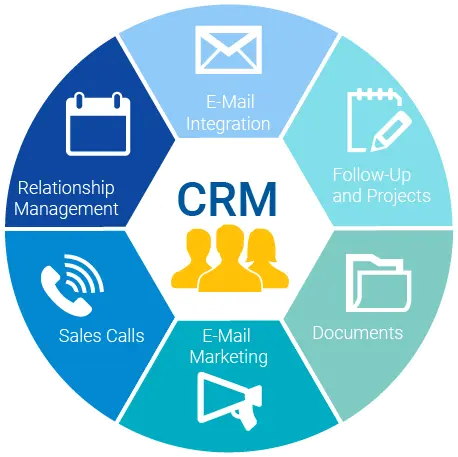
Imagine having a trusty assistant who knows your customers inside out, remembers their preferences, and helps you deliver personalized experiences. That’s the power of eCommerce CRM!
In a nutshell, it’s like having a digital sidekick that helps you manage your customer relationships effortlessly.
But why should you care about eCommerce CRM?
Well, hold on tight because I am about to reveal some mind-blowing benefits of eCommerce CRM .
Getting a 360-degree view of your customers
First and foremost, CRM enables you to gain a 360-degree view of your customers. With all their purchase history, preferences, and interactions neatly organized, you can truly understand their needs and provide tailored solutions.
Ramping up your marketing efforts
An eCommerce CRM software empowers you to supercharge your marketing efforts. Say goodbye to generic mass emails and hello to targeted, personalized campaigns that hit the bullseye every time.
By leveraging customer data and segmentation, you can deliver the right message to the right person at the right time, skyrocketing your conversion rates.
Tracking your sales pipeline
With eCommerce CRM, you can effortlessly track and analyze your sales pipeline. No more guessing games or spreadsheets from the Stone Age.
Visualize your sales process, identify bottlenecks, and optimize your strategies for maximum efficiency. It’s like having a crystal ball that helps you predict and conquer the future.
Empowers customer loyalty
Yep, eCommerce CRM software is your secret weapon in building long-lasting relationships.
By keeping track of customer interactions and preferences, you can surprise and delight them with personalized offers, exclusive discounts, and tailored recommendations. Watch those loyal customers multiply faster than bunnies on a sugar rush!
But wait, how does CRM exactly improve customer loyalty?
Ah, customer loyalty, the holy grail of every business. So, how does CRM work its magic and woo these customers to devotion towards your brand?
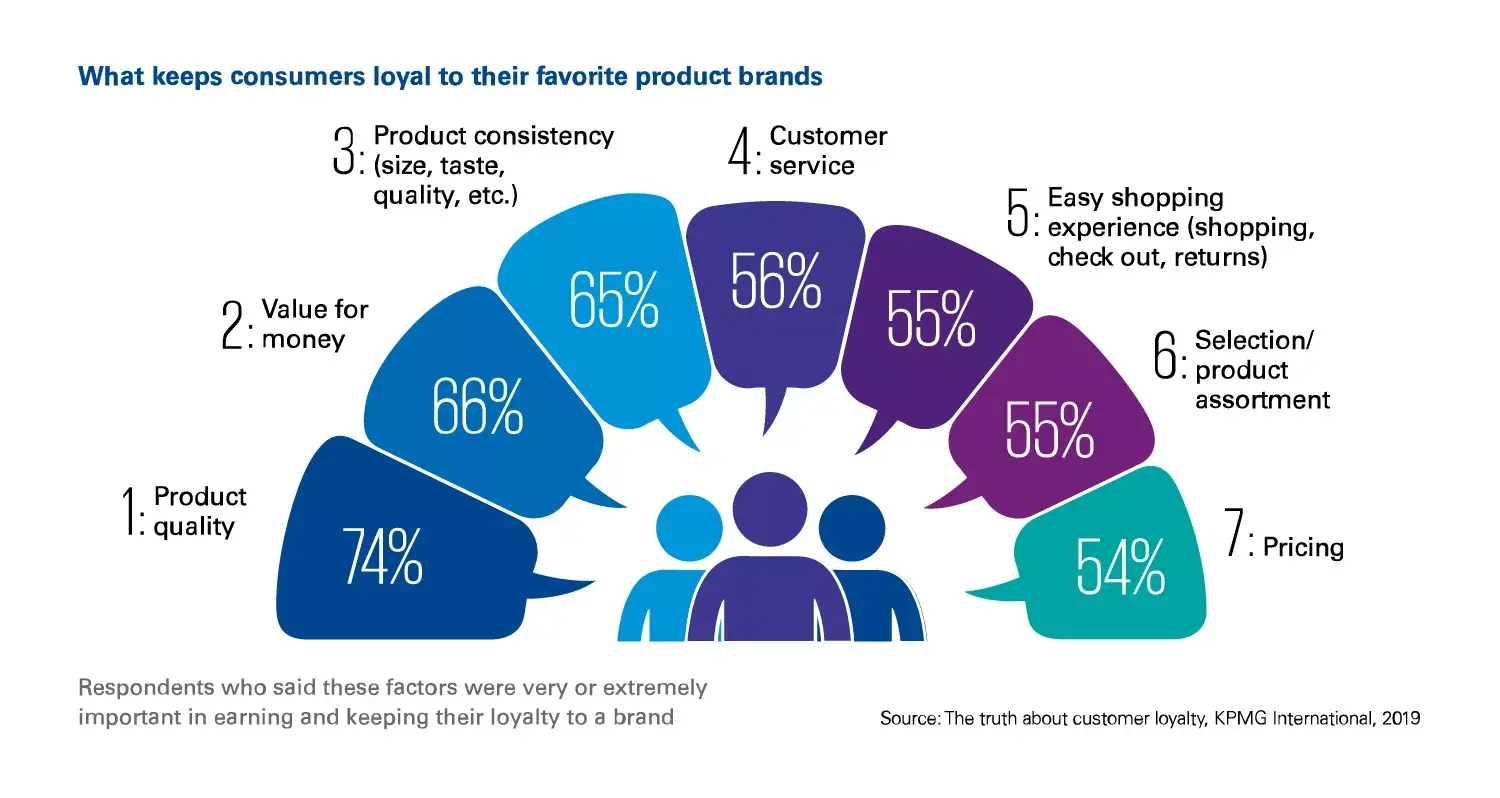
Picture this: With eCommerce CRM, you become the ultimate memory master. It’s like having a digital brain that stores every customer interaction, preference, and purchase history.
Armed with this wealth of information, you can wave goodbye to generic, one-size-fits-all approaches and say hello to personalized experiences that make your customers feel like VIPs.
Remembering birthdays, anniversaries, and special occasions becomes a breeze. Sending personalized messages or offering exclusive discounts becomes second nature. It’s like having a built-in radar for showing your customers that you truly care.
After all, who doesn’t like a little attention to detail?
By understanding their buying habits, preferences, and pain points, you can anticipate their needs and provide tailored solutions.
Think about it – You stroll into a store, and the friendly salesperson greets you by name, asks about your favorite products, and suggests items you’ll love based on your past purchases. It’s a personalized experience that makes you feel valued and understood. Well, eCommerce CRM software allows you to recreate that same magic in the online realm.
By harnessing the power of CRM, you can send targeted recommendations and offers that make your customers go, “Wow, they really get me!”
You’ll create a sense of exclusivity and connection, nurturing a bond that goes beyond transactional exchanges.
Choosing the Right CRM Solution for eCommerce
When it comes to choosing the best CRM solution for your eCommerce business, the options can seem overwhelming. But fear not, intrepid entrepreneur!
I’m here to break it down for you. Let’s take a look at some of the most popular CRMs available:
HubSpot CRM

HubSpot CRM is a leading player in the market. It is one of the top CRM software offering a robust and user-friendly platform tailored for eCommerce businesses. It boasts powerful features such as contact management, deal tracking, and email marketing automation, all in one centralized system.
Maria Harutyunyan, the Co founder of Loopex Digital says,
I do use HubSpot CRM for my e-commerce marketing on a regular basis and have seen tremendous results.
The platform provides me with the tools better to manage all aspects of my client’s digital deals – from onboarding to delivery – and ensures that I always provide the best possible service.
| Also read: Why Go HubSpot? An All-in-one Platform To Upgrade Your Business |
Salesforce CRM
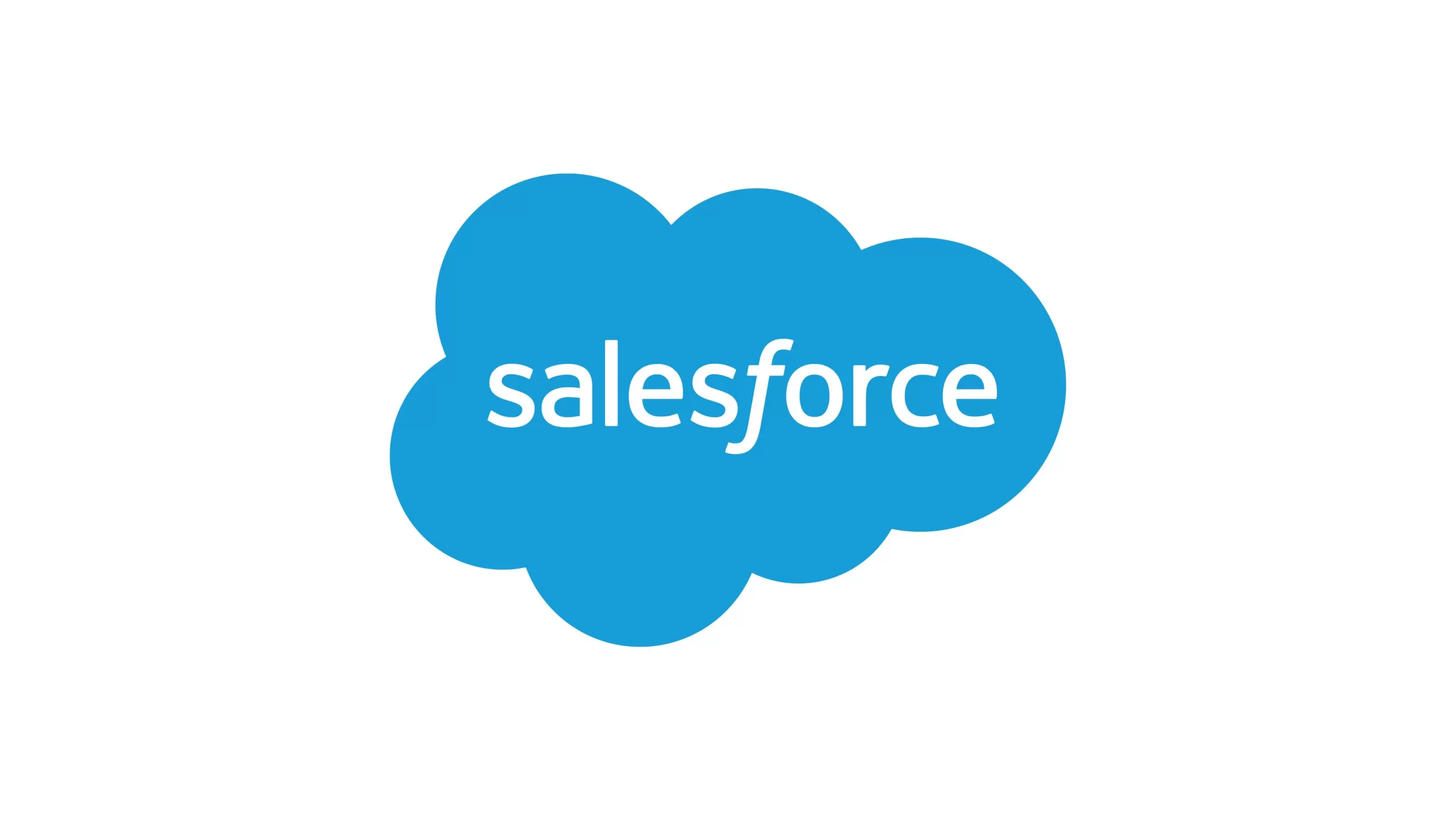
Salesforce CRM is a heavyweight in the CRM arena, known for its comprehensive suite of tools and extensive customization options. Also counted among the top CRM software, it offers a wide range of features, including sales forecasting, lead management, and customer service automation.
Zoho CRM

Zoho CRM is a popular choice among small and medium-sized eCommerce businesses. It offers a user-friendly interface, customizable modules, and integrations with other Zoho applications, making it a versatile option for managing customer relationships.
Microsoft Dynamics 365

Microsoft Dynamics 365 combines CRM and ERP functionalities, making it a suitable choice for eCommerce businesses looking for an all-in-one solution. It offers features such as sales automation, customer service management, and marketing automation.
Factors to consider when selecting the best eCommerce CRM
Now that we’ve taken a glance at the available options, let’s delve into the key factors to consider when selecting the perfect CRM solution for your eCommerce business:
Scalability
As your eCommerce business grows, so will your customer base and data. Ensure that the CRM tools you choose can scale alongside your business, accommodating your evolving needs without hiccups.
Integration capabilities
Your CRM system should seamlessly integrate with other essential tools and platforms you use, such as your eCommerce platform, email marketing software, and analytics tools. This integration ensures smooth data flow and comprehensive insights.
Customization options
Every eCommerce business is unique, and your best CRM solution should reflect that. Look for a CRM system that offers customization options, allowing you to tailor it to your specific workflows, data fields, and reporting requirements.
User-friendliness
A user-friendly CRM system saves time and minimizes frustration. Ensure that the interface is intuitive, the navigation is straightforward, and the learning curve is not too steep for you and your team.
Why HubSpot CRM is a suitable choice for eCommerce businesses
Among the array of options available, HubSpot CRM shines as a particularly suitable choice for eCommerce businesses. Here’s why:
Integration with eCommerce platforms
HubSpot CRM seamlessly integrates with popular eCommerce platforms like Shopline, BigCommerce, WooCommerce, and Magento. This integration allows for real-time syncing of customer data, order information, and inventory, providing a holistic view of your customer journey.
Marketing automation prowess
HubSpot CRM offers robust marketing automation capabilities. From personalized email campaigns to lead nurturing workflows, you can automate your marketing efforts and deliver targeted messages that drive engagement and conversions.
We have easily identified the most qualified leads, nurtured them with targeted messaging, and prioritized follow-ups accordingly.
As a result, our conversion rates have improved by 24% after six months of adopting the HubSpot CRM. It has also streamlined our sales efforts and contributed to better profitability for our company.
– Milo Cruz, CMO at Freelance Writing Jobs
Easy-to-use interface
HubSpot CRM boasts an intuitive and user-friendly interface. Its drag-and-drop functionality, customizable dashboards, and visual reporting make it a breeze to navigate and extract meaningful insights.
Robust customer support
HubSpot’s extensive knowledge base, support resources, and active community ensure that you’ll never be left in the dark. Their customer support team is readily available to answer questions and provide guidance, ensuring a smooth CRM experience.
When selecting the best CRM solution for your eCommerce business, consider factors like scalability, integration capabilities, customization options, and user-friendliness.
| Also Read: Why Nonprofits Should Use A CRM? [7 Reasons] |
Getting Started with HubSpot CRM for eCommerce
Interested in conducting CRM with HubSpot? Well, let’s finish setting up your account first!
Setting up a HubSpot CRM account
Setting up your account is a breeze. Here’s a quick step-by-step HubSpot eCommerce CRM guide to get you started:
- Visit the HubSpot website and sign up for a free CRM account.
- Follow the guided setup process, providing essential details about your business and contact information.
- Customize your CRM settings to align with your eCommerce business needs.
- Set up pipelines, deal stages, and custom properties to organize your customer data effectively.
And that’s it! Your HubSpot CRM is all set to function seamlessly.
| Still have doubts with setting up your CRM? Here’s How To Perform The Basic HubSpot CRM Setup. |

Thinking About Getting HubSpot CRM?
Audit your HubSpot portal now!
Integrating HubSpot CRM with your eCommerce platform
To harness the full potential of HubSpot CRM tools, seamless integration with your eCommerce platform is key. Let’s explore the steps to make this integration a reality:
Identify your eCommerce platform
Determine which eCommerce platform powers your online store. Whether it’s Shopify, WooCommerce, Magento, or any other platform, HubSpot CRM tools offer integrations for a wide range of options.
Access the HubSpot App Marketplace
Navigate to the HubSpot App Marketplace and search for the integration specific to your eCommerce platform. Install the integration and follow the provided instructions.
Connect your eCommerce platform
Follow the integration setup instructions to connect your eCommerce platform with HubSpot CRM. This connection allows for the automatic syncing of customer data, orders, and other relevant information.
Importing and organizing customer data in HubSpot CRM
With your HubSpot CRM account set up and integrated with your eCommerce platform via this eCommerce CRM guide, it’s time to import and organize your customer data. Here’s how to make it a smooth process:
Export customer data
Export your existing customer data from your eCommerce platform. This typically includes information such as customer names, email addresses, order history, and other relevant details.
Import data into HubSpot CRM
In HubSpot CRM, navigate to the “Contacts” section and select “Import.” Follow the prompts to upload your customer data file. Map the data fields to ensure accurate importing.
Organize your contacts
Once the data is imported, organize your contacts using HubSpot CRM’s powerful tools. Utilize HubSpot lists for segmentation to categorize contacts based on criteria such as purchase history, preferences, or engagement level.
Leverage custom properties
Create custom properties in HubSpot CRM to store additional data specific to your eCommerce business needs. These properties can include information like order values, product preferences, or customer segments.
By following these steps, you’ll seamlessly import and organize your customer data within HubSpot CRM, setting the foundation for effective customer relationship management.
Leveraging HubSpot CRM Features for eCommerce Success
Get ready to unlock the secrets of managing customer interactions, tracking user behavior, personalizing experiences, automating marketing campaigns, and streamlining sales and pipeline management.
My team utilizes HubSpot CRM to automate customer support tasks, such as responding to common questions relating to our app.
By doing so, my team can focus on more complex sales and marketing tasks.
– Simon Bacher, Co-Founder of Simya Solutions
With HubSpot CRM as your trusty companion, you’ll be well-equipped to create tailored experiences that dazzle your customers and drive eCommerce success.
Managing customer interactions and communications
When it comes to eCommerce success, managing customer interactions and communications is paramount. HubSpot CRM programs offer a range of features to help you excel in this arena:
First and foremost, the “Contacts” section of HubSpot CRM programs serve as your command center for customer interactions. From here, you can view and update contact details, track communication history, and log notes to ensure seamless and personalized interactions.

The integrated email feature allows you to send personalized emails directly from the CRM. Whether it’s order confirmations, follow-up messages, or targeted promotional campaigns, you can engage with your customers in a meaningful and timely manner.
Tracking and analyzing customer behavior and preferences
Understanding your customers’ behavior and preferences is like unlocking a treasure trove of insights. HubSpot CRM provides tools to track and analyze this valuable information:
The “Activity Feed” in HubSpot CRM logs all customer interactions, giving you a comprehensive view of their engagement with your brand. From website visits to email opens and clicks, you can track it all and gain valuable insights into their behavior.


Utilize HubSpot’s robust analytics capabilities to dig deeper into customer data. From tracking conversion rates to analyzing purchase patterns, these insights empower you to make data-driven decisions and optimize your eCommerce strategy.
Personalizing the customer experience through segmentation and targeting
One-size-fits-all approaches won’t cut it in the world of eCommerce. HubSpot CRM enables you to create tailored experiences through segmentation and targeting:
Leverage the segmentation feature to group your contacts based on specific criteria such as purchase history, demographics, or engagement level. By segmenting your audience, you can deliver targeted messages and offers that resonate with each group.
Utilize HubSpot CRM’s personalization tokens to dynamically insert customer-specific information into your communications. From personalized subject lines to tailored content, you can make your customers feel seen and valued.
Automating marketing campaigns with HubSpot CRM
Automation is a game-changer in the world of eCommerce marketing. HubSpot CRM equips you with the tools to automate your marketing campaigns:
The visual workflow editor in HubSpot CRM programs allow you to design and automate complex marketing workflows. From abandoned cart reminders to post-purchase follow-ups, you can set up automated campaigns that nurture your customer relationships and drive conversions.
Leverage email marketing automation to send targeted and personalized messages based on customer behavior and preferences. Whether it’s a series of onboarding emails or re-engagement campaigns, HubSpot CRM has you covered.
| You may also like: 8 ECommerce Workflow Automation Ideas For Better Productivity |
Utilizing the sales and pipeline management features of HubSpot CRM
Effective sales management is the backbone of eCommerce success. HubSpot CRM’s sales and pipeline management features empower you to optimize your sales processes:
Manage your sales pipeline with ease using the intuitive drag-and-drop interface in HubSpot CRM. From capturing and tracking leads to closing deals, you can visualize your sales process and take actions at each stage.
Leverage the deals feature to track and manage individual sales opportunities. Assign tasks, set reminders, and monitor deal progress to ensure a streamlined and efficient sales cycle.
In conclusion, by leveraging HubSpot CRM’s features for eCommerce success, you can effectively manage customer interactions, track and analyze behavior, personalize the customer experience, automate marketing campaigns, and streamline sales and pipeline management.
With these powerful tools at your disposal, you’re well-equipped to deliver exceptional experiences, nurture customer relationships, and achieve eCommerce greatness.
Integrating CRM with eCommerce Tools and Platforms
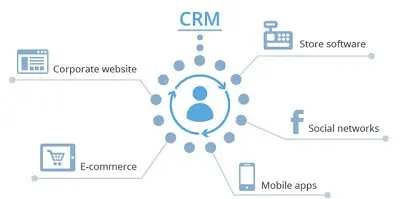
Moving forward in the eCommerce CRM guide, let’s discover how integrating CRM with your eCommerce tools and platforms can enhance customer relationships, streamline operations, and propel your online business.
This eCommerce CRM guide will get you through connecting with your eCommerce platform, syncing customer data effortlessly, and automating crucial processes. Benefits of Integrating your CRM with other eCommerce tools.
Benefits of Integrating your CRM with other eCommerce tools
Did you know that the average ROI for CRM integration is $8.71 for each dollar invested?

Bet you didn’t!
But now that you know it, here are some more benefits of integrating CRM with other eCommerce tools for maximum resource utilization and profits.
Automated Data Sync
By integrating CRM programs with your eCommerce tools, you unlock the power of automated data sync. Say goodbye to manual data entry and hello to seamless data transfer between platforms.
This automation saves you time and ensures accurate and up-to-date customer information across your systems. Prepare to streamline your operations and keep your data in perfect harmony.
Centralized Customer Database
With CRM integration, you can enjoy the benefits of a centralized customer database. Imagine having all your customer information, from purchase history to communication logs, in one place.
This centralized hub allows for easy access and a 360-degree view of each customer, empowering you to deliver personalized experiences and build stronger relationships.
Streamlined Sales Processes
Integrating CRM with your eCommerce tools leads to streamlined sales processes. From lead generation to deal tracking and order fulfillment, you can automate and optimize your sales workflow.
Say hello to increased efficiency, reduced manual tasks, and a more organized sales pipeline. Get ready to accelerate your sales and achieve faster conversions.
Targeted Marketing Campaigns
With CRM integration, you gain the power to run targeted marketing campaigns. By leveraging the customer data in your CRM, you can segment your audience based on preferences, behaviors, or purchase history.
This segmentation enables you to deliver personalized messages and offers, ensuring that your marketing efforts hit the mark. Get ready to captivate your audience and drive higher engagement rates.
Enhanced Customer Experience
Integrating CRM with your eCommerce tools paves the way for an enhanced customer experience. With a centralized customer database, personalized marketing, and streamlined sales processes, you can deliver tailored experiences that resonate with your customers.
According to the Temkin Group, companies that earn $1 billion per year can expect to earn an additional $700 million within three years of investing in customer experience.
Revenue for SaaS companies, in particular, can be expected to increase by $1 billion.
That’s correct!
Investing in customer experience initiatives has the potential to more than double your revenue.
From personalized recommendations to proactive support, your customers will feel valued and appreciated. Brace yourself for increased customer satisfaction and loyalty.
How to integrate CRM with eCommerce tools and platforms
Integrating CRM with eCommerce tools and platforms is an exciting endeavor that can revolutionize your business operations. Here’s how we assist you with your eCommerce integration:

Further in the eCommerce CRM guide, let’s explore the steps to seamlessly integrate CRM with your chosen eCommerce ecosystem, ensuring a smooth and efficient process.
Identify Integration Requirements
- Begin by identifying your integration requirements.
- Assess the specific data and functionalities you need to synchronize between your CRM and eCommerce platform.
- Understanding your integration needs sets the foundation for a successful integration journey.
Research Integration Methods
- Research different integration methods available for your CRM and eCommerce platform.
- Evaluate options such as pre-built integrations, third-party connectors, or custom API development.
- Consider factors like compatibility, ease of use, and scalability to make an informed decision.
Choose a Suitable Integration Solution
- Select a suitable integration solution that aligns with your requirements and budget.
- If pre-built integrations or connectors are available, evaluate their features, customer reviews, and support options.
- If a custom API development approach is necessary, engage with experienced developers or consult with integration experts.
Configure Integration Settings
- Once you have chosen your integration solution, it’s time to configure the integration settings.
- Follow the provided instructions or work with the integration tool’s interface to establish the connection between your CRM and eCommerce platform.
- Configure data mapping, synchronization frequency, and any specific settings to tailor the integration to your needs.
Test and Validate Integration
- Testing is a critical step to ensure the integration functions smoothly.
- Run test scenarios to validate data synchronization, order processing, and any other integrated functionalities. Check for any discrepancies or errors and make necessary adjustments.
- Thorough testing guarantees a reliable integration that enhances your business operations.
Monitor and Maintain Integration
- Integration is an ongoing process that requires monitoring and maintenance.
- Regularly monitor data flows, synchronization accuracy, and any potential errors. Stay up-to-date with system updates and security patches.
- Address any issues promptly to maintain a seamless integration and optimize its performance.
By following these eCommerce CRM guide steps, you can successfully integrate CRM with your eCommerce tools and platforms. This integration empowers you to streamline processes, unify customer data, and optimize your business operations.
Overcoming Challenges in eCommerce CRM Implementation

Now that you have successfully set up and integrated your eCommerce CRM, it is important to look out for certain challenges and how to tackle them.
Common Challenges and Pitfalls to Avoid
Embarking on an eCommerce CRM implementation journey comes with its fair share of challenges.
Nonetheless, by recognizing and addressing these common pitfalls, you can set yourself up for success:
Insufficient planning
Inadequate planning can lead to delays, confusion, and a lack of clear goals. Take the time to establish a well-defined implementation strategy, including timelines, resource allocation, and measurable objectives.
Data quality issues
Poor data quality can hinder the effectiveness of your CRM system. Inaccurate or incomplete customer data leads to flawed insights and subpar customer experiences. Prioritize data cleansing, validation, and ongoing data governance practices to maintain data integrity.
Resistance to change
Resistance from employees or stakeholders can impede CRM implementation. People naturally resist change, so it’s essential to address concerns, communicate the benefits, and involve key stakeholders throughout the process. Hence foster a culture that embraces change and emphasizes the value of the CRM system.
Strategies for Overcoming Data Quality Issues
Data quality is paramount for a successful eCommerce CRM software implementation. Hence, consider these strategies to overcome data quality challenges:
Data cleansing and validation
Invest time and resources in cleaning and validating your existing data. Further, remove duplicate records, correct errors, and ensure consistency across data fields. Eve so, implement data validation rules and procedures to prevent the entry of incomplete or inaccurate data.
Data integration and synchronization
Establish seamless integration and synchronization between your eCommerce platform and CRM system. Consequently, this ensures that data flows effortlessly, reducing the risk of data discrepancies or duplications.
Ongoing data maintenance
Implement data governance practices to maintain data quality over time. That being said, regularly review and update customer information, establish data ownership and accountability, and implement processes for ongoing data cleansing and enrichment.
Change Management and Adoption Strategies
Smooth adoption of the CRM system is crucial for its success. This is why you need to consider these strategies to facilitate change management and user adoption:
Clear communication and training
Clearly communicate the benefits of the CRM system to all stakeholders. Significantly provide comprehensive training sessions to ensure users understand how to leverage its features effectively. Specifically address concerns, provide ongoing support, and encourage feedback to foster a positive user experience.
User involvement and feedback
Involve users in the implementation process from the early stages. Seek their input, let them in on decision-making, and address their needs and preferences. Actively seek feedback throughout the implementation and iterate based on user insights.
Recognize and celebrate success
Celebrate milestones and successes during the CRM implementation journey. Recognize and reward individuals or teams that embrace the CRM system and achieve positive outcomes. Encourage a culture of appreciation and continuous improvement.
By proactively addressing common challenges, focusing on data quality, and implementing effective change management strategies, you can overcome hurdles and ensure a successful eCommerce CRM implementation.
Embrace these strategies, and get ready to unleash the full potential of your CRM system, driving exceptional customer experiences and propelling your eCommerce business towards unparalleled success.
Best Practices for eCommerce CRM Success
Here are some best practices to optimize your eCommerce CRM platforms the right way.
Training and Onboarding Your Team for Effective CRM Usage
Embrace the CRM superheroes
Identify individuals in your team who have a knack for technology and a passion for customer relationships. Evidently, these CRM superheroes can become your internal champions, leading the way in training and supporting others.
Supercharge with interactive training
Ditch the boring PowerPoint slides!
Even so, engage your team with interactive and hands-on training sessions. Furthermore, role-playing exercises, real-life scenarios, and gamified learning can make CRM training a fun and memorable experience.
Ongoing learning and support
Don’t leave your team hanging after the initial training. Instead, offer ongoing learning resources such as video tutorials, FAQs, and regular check-ins to ensure continuous skill development and support.
Ensuring Data Hygiene and Data Quality in HubSpot CRM
Regular data cleanup parties
Turn data hygiene into a team event! In fact, schedule regular data cleanup parties where you and your team can join forces to cleanse, validate, and organize customer data. Even so, celebrate the victories and reward the data champions!
The best part is, data cleansing doesn’t even have to take up too much of your time. In fact, you can do it in just 24 hours!
Automated data validation
Leverage the power of HubSpot CRM’s data validation features. Set up validation rules to ensure that only accurate and complete data makes its way into your CRM system. Even so, say goodbye to typos, incomplete entries, and other data villains!
Data quality superheroes
Appoint a data quality superhero within your team who takes charge of monitoring data quality, creating data governance processes, and promoting best practices. Together, you can keep your CRM data in tip-top shape.
| Don’t overlook the backlinks while you’re organizing the data cleaning party. So, Learn How To Find And Fix Toxic Backlinks For Your Website? |
Implementing Security Measures to Protect Customer Data
Fortify your CRM fortress
Implement robust security measures to safeguard your customer data. Hence, utilize user permissions, two-factor authentication, and encryption to protect sensitive information from potential data breaches. As a result, your customers will rest easy knowing their data is in good hands.
Train your team in data security
Educate your team about the importance of data security and their role in protecting customer information. Moreover, promote a culture of vigilance, ensuring that everyone understands the dos and don’ts of data security.
Stay updated with security upgrades
Keep a keen eye on HubSpot CRM’s security updates and patches. Equally important is to regularly update your CRM system to take advantage of the latest security enhancements and stay one step ahead of potential security threats.
Measuring and Evaluating the Success of Your eCommerce CRM Strategy
Set superheroic goals
Define measurable goals that align with your business objectives. Whether it’s increasing customer satisfaction, boosting sales, or improving retention rates, set ambitious goals that inspire your team to unleash their CRM superpowers.
Leverage HubSpot CRM analytics
Dive into the treasure trove of analytics and reporting features offered by HubSpot CRM. Track key metrics such as customer engagement, conversion rates, and revenue generated. Moreover, gain valuable insights to optimize your CRM strategy and make data-driven decisions.
Celebrate your CRM victories
Don’t forget to celebrate your wins along the way!
By all means, recognize and reward individuals or teams that achieve CRM-related milestones. Above all, a little celebration goes a long way in keeping the momentum high and the CRM spirit alive.
Additionally, implementing these best practices, you’ll be well on your way to eCommerce CRM success. So, train and empower your team, ensure data hygiene and quality, fortify your CRM fortress, and measure the impact of your CRM strategy.
The Future of eCommerce CRM
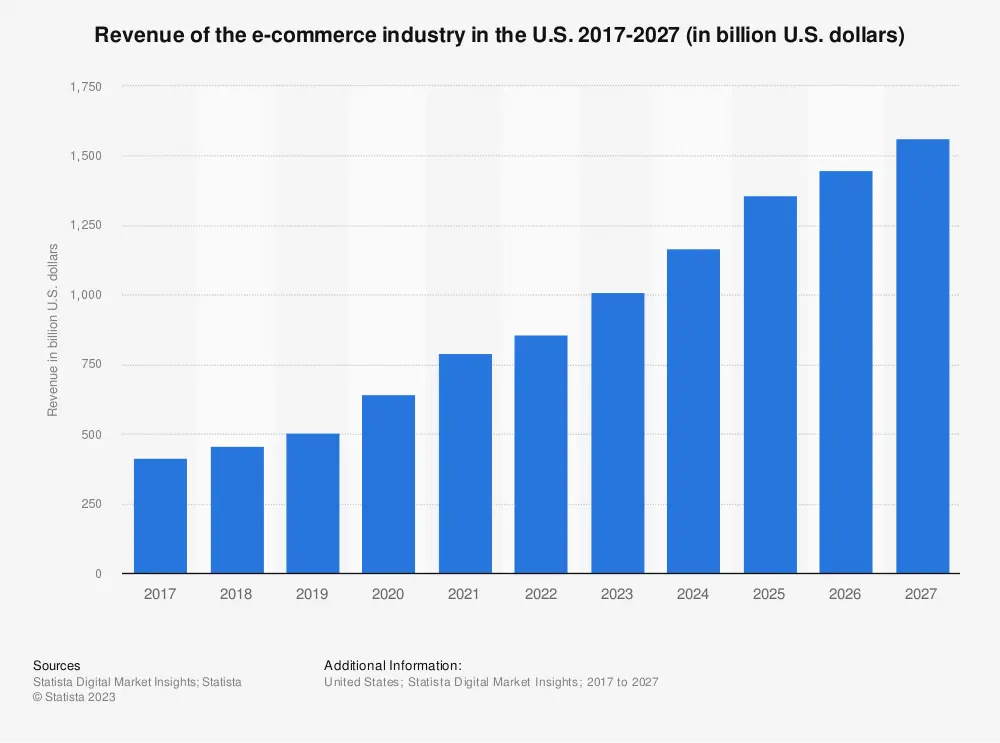
Before you start your eCommerce CRM journey, let’s discuss the latest news on the same.
Emerging Trends and Technologies in CRM
Omni-channel integration
Say goodbye to siloed customer experiences!
In a word, the future of eCommerce CRM lies in seamless omni-channel integration.
Furthermore, customers expect consistent and personalized interactions across multiple channels, be it social media, mobile apps, or in-store experiences. In addition to that, CRM systems will evolve to unify data and facilitate cohesive customer journeys.
Advanced analytics and predictive insights
Brace yourself for a data-driven revolution! CRM systems will become even smarter, leveraging advanced analytics and predictive insights.
Moreover, machine learning algorithms will analyze vast amounts of customer data to uncover patterns, predict customer behavior, and provide personalized recommendations, enabling businesses to make proactive and informed decisions.
Personalization and AI in eCommerce CRM
Hyper-personalization at scale
Get ready for hyper-personalization like never before! Be that as it may, eCommerce CRM will harness the power of AI and machine learning to deliver tailored experiences at scale.
Henceforth, from personalized product recommendations to dynamic pricing strategies, CRM systems will anticipate customer needs and preferences, offering a truly personalized shopping journey.
Conversational commerce
Say hello to chatbots and virtual assistants!
Markedly, CRM systems will incorporate natural language processing and AI-powered chatbots to engage in real-time conversations with customers.
Concurrently, these virtual assistants will provide instant support, answer inquiries, and guide customers through their purchase journey, all while collecting valuable data to enhance future interactions.
Anticipated Developments and Innovations
Voice-enabled commerce
Voice assistants are taking center stage!
Furthermore, the future of eCommerce CRM will witness voice-enabled commerce, allowing customers to make purchases, check order status, and interact with brands using voice commands.
Consequently, the CRM systems will seamlessly integrate with voice assistants, creating a hands-free shopping experience.
Blockchain for secure transactions
Get ready for the rise of blockchain technology in eCommerce CRM. Blockchain’s decentralized and transparent nature will enhance security and trust in online transactions.
As a result, the CRM systems will leverage blockchain to ensure secure data sharing, prevent fraud, and streamline cross-border transactions.
Augmented reality for immersive experiences
Step into the world of augmented reality (AR)!
eCommerce CRM will incorporate AR technology, enabling customers to visualize products in their physical environment before making a purchase. What’s more, from trying on virtual clothes to previewing furniture in their living rooms, AR will revolutionize the way customers shop online.
Given these points, it indicates that the possibilities are endless, and the future of eCommerce CRM platforms hold exciting opportunities for businesses to connect with customers in meaningful and memorable ways.
So, get ready to embrace the future and unleash the full potential of eCommerce CRM!
Conclusion
In conclusion, I have my fingers crossed in hopes that this eCommerce CRM guide helps you set up your eCommerce CRM perfectly.
All things considered, remember that in the realm of eCommerce CRM, the only limit is your imagination. So go forth, be bold, and write your own success story.
At last, the future is yours to shape, and with the power of eCommerce CRM by your side, there’s no limit to what you can achieve. Get ready to soar to new heights and witness your eCommerce business thrive like never before!


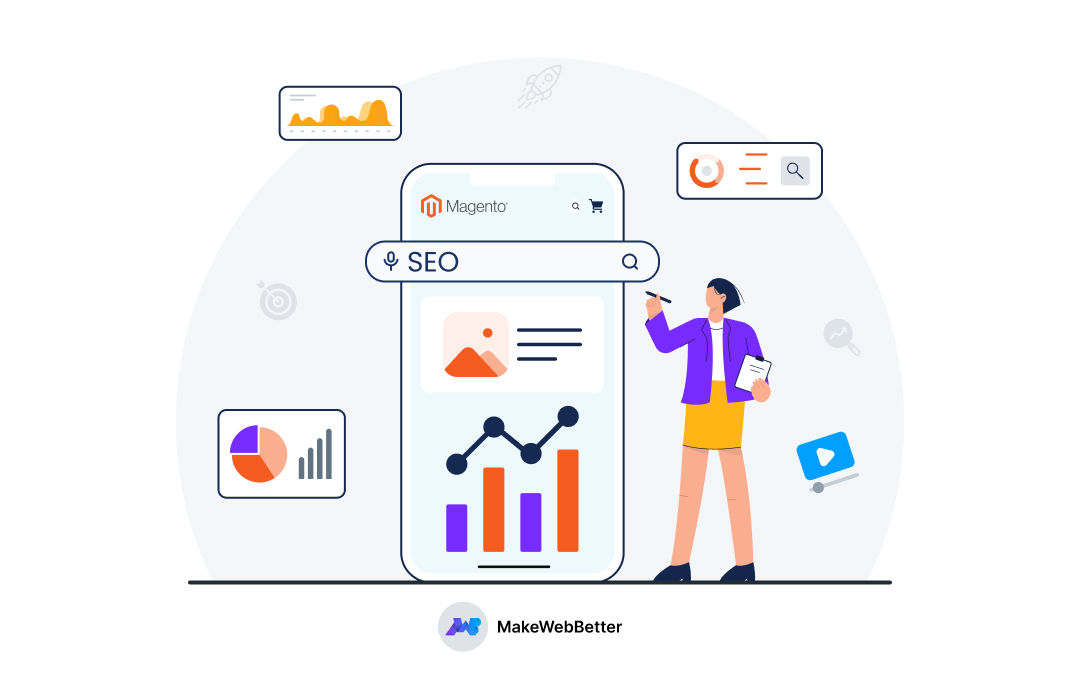






Knowing who your customers are, what they are doing and how this relates to your bottom line is mission-critical in today’s unpredictable ecommerce world. This is accomplished by having the right data & using that data to create actionable business intelligence that feeds your return on investment.
This is, perhaps, one of the greatest benefits to integrating an “ecommerce CRM” strategy into your online marketing plan.
Well said, Robert. I hope you enjoyed reading our article. Check out our blogs for more informative content @https://makewebbetter.com/blog